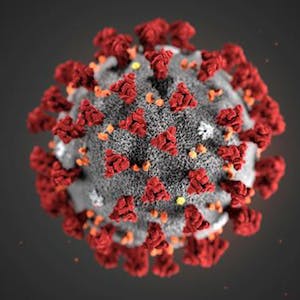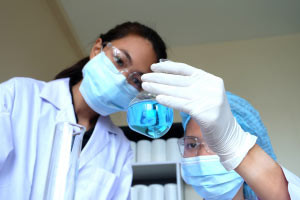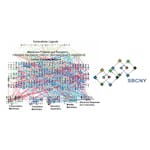Description
- To be aware of the scale of the emerging outbreak and know how to track trends using reliable sources of information.
- To recognise the key scientific underpinnings of evidence-based outbreak control methods.
- To recognise the importance of community involvement, multidisciplinary working and global cooperation in outbreak response .
- About how infectious disease modelling informs strategic and operational response at the local, national, and international level. .
Welcome to ‘Science Matters: Let's Talk about COVID-19’, from the Abdul Latif Jameel Institute for Disease and Emergency Analytics (J-IDEA) at Imperial College London. The outbreak of the Novel Coronavirus Disease (COVID-19) is the most significant public health emergency of the 21st century so far. As the epidemic spreads, people around the world want to understand the science behind the most pressing questions: how many people have been infected? How dangerous is the virus? When will a vaccine be available? How can the epidemic be contained, and the damages mitigated? What is the economic impact? What’s the role of social media and local communities in the epidemic response? Researchers at J-IDEA and other research institutes at Imperial College London have been at the forefront of the response to the COVID-19 emergency, with clinical, epidemiological and social science analyses informing the outbreak response. They are generating robust empirical evidence that governments and international agencies are using around the world to plan their responses. On this course, you will hear directly from our world-class experts about the theory behind the analyses of COVID-19 and its spread, while learning how to interpret new information using core principles of public health, epidemiology, medicine, health economics, and social science. You will be able to watch regular situation reports about the state of the epidemic, provided by the researchers of J-IDEA and its director Professor Neil Ferguson. If you want to learn even more about these topics, a number of free MOOCs are available from Imperial College London. We also offer a fully online Global Master of Public Health for those of you who want to delve even deeper and join our professional community. Please note: This course was launched in February 2020 and we have continued to develop content as the COVID-19 situation progresses and new insights emerge. While we endeavour to include the most recent information, this is a fast-moving situation and information is constantly changing. This course is to be used for educational purposes only and is open to all and free of charge. The information in this course does not constitute clinical or other advice and must not be used for the purposes of providing any clinical or other advice. If you have any health concerns, please refer to your regional health authorities’ guidelines and consult a medical professional. Please note the views expressed by individuals in the course content do not necessarily reflect those of Imperial College London, J-IDEA and any other funding partners. Imperial College London, J-IDEA and any other funding partners shall not be liable, to the maximum extent permitted by law, for any loss suffered or for any other adverse or negative consequence arising directly or indirectly from your reliance on the information contained in this course. Imperial College London is a world top ten university with an international reputation for excellence in science, engineering, medicine and business. located in the heart of London. Imperial is a multidisciplinary space for education, research, translation and commercialisation, harnessing science and innovation to tackle global challenges. Imperial students benefit from a world-leading, inclusive educational experience, rooted in the College’s world-leading research. Our online courses are designed to promote interactivity, learning and the development of core skills, through the use of cutting-edge digital technology. The Abdul Latif Jameel Institute for Disease and Emergency Analytics (J-IDEA) brings together global health researchers in the School of Public Health at Imperial College London. Drawing on Imperial’s expertise in data analytics, epidemiology and economics, J-IDEA will improve our understanding of diseases and health emergencies in the most vulnerable populations across the globe. The Institute links governments, research institutions and communities to develop practical and effective long-term solutions, shape health policy and deliver better quality of life for all. Join us to learn more about the science underpinning the analyses of the novel coronavirus pandemic, now referred to as COVID-19. This module will include regular updates about the current state of the epidemic from the leading researchers of the Abdul Latif Jameel Institute for Disease and Emergency Analytics (J-IDEA) and the MRC Centre for Global Infectious Disease Analysis (MRC GIDA), including Prof Neil Ferguson. Don't forget to check out the Sit.Reps discussion forum. This module will cover a number of the essential principles of epidemiology and infectious disease modelling. You will hear from our experts who will explain the basic reproductive number is used to understand transmissibility, about how the case fatality rate is estimated, how phylogenetic analysis can be used to understand the epidemiology of COVID 19 and about the relative sensitivity of international COVID-19 surveillance. Don't forget to check out this module's discussion forum. This session is being created in real time as the epidemic unfolds. This section will be updated with up to date materials once they become available. This session is being created in real time as the epidemic unfolds. This section will be updated with up to date materials once they become available. This session is being created in real time as the epidemic unfolds. This section will be updated with up to date materials once they become available. This session is being created in real time as the epidemic unfolds. This section will be updated with up to date materials once they become available. This session is being created in real time as the epidemic unfolds. This section will be updated with up to date materials once they become available.








